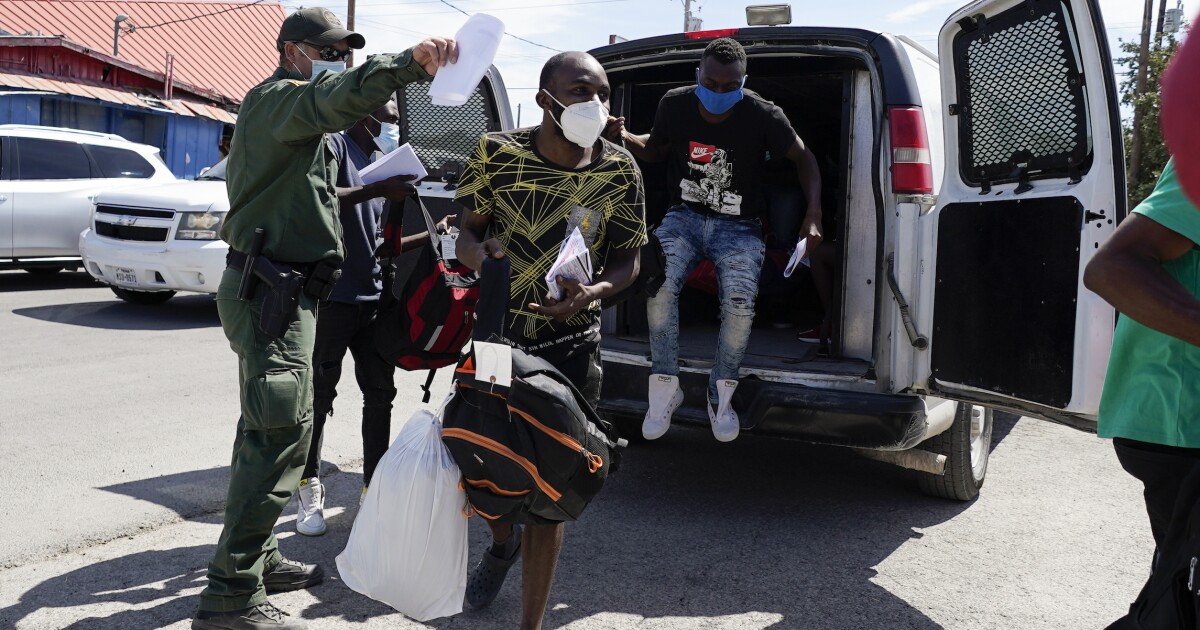

A Florida congressman is on a mission to determine how Border Patrol agents detain or release illegal immigrants who claim to be minors after one such incident in which a 24-year-old Honduran man sent to his district killed a resident.
Rep. John Rutherford (R-FL) is pushing the federal government to explain its protocol for vetting the backgrounds and verifying the ages of illegal immigrants arrested at the border who claim to be underage.
“No one can prove who he is, and yet their default position seems to be, ‘If you can’t figure out who they are, let them in.’ I disagree with that,” Rutherford said in an interview with the Washington Examiner. “I don’t think they’re vetting them properly, and if they can’t determine who they are, then they should hold them in detention until they can determine who they are or deport them out of the country. It’s just unacceptable to me that somebody gets to come to America, comes across the border illegally, and we have no idea who they are.”
Rutherford has asked U.S. Customs and Border Protection to hand over general orders, standard operating procedures, and training for how agents are taught to carry out background checks on people in custody, particularly any person who claims to be 17 years old or younger but does not have any proof.
In a 2021 incident that affected Rutherford’s Jacksonville community, an immigrant who claimed to be 17 years old and have a relative in that city was released at the border and flown to Jacksonville to live with a man he had claimed was his uncle. It was not until after the immigrant, Yery Noel Medina Ulloa, was arrested by local police for the murder of Francisco Javier Cuellar that authorities discovered Medina Ulloa’s real name and age. Medina Ulloa was 24 years old.
Medina Ulloa was tried in court and convicted, sentenced in March this year to 60 years in state prison for stabbing and striking Cuellar to death. Cuellar was a father of four children. Authorities have not disclosed details about how both men originally knew each other.
Had he identified to Border Patrol as a 24-year-old from Honduras, he would have been returned to Mexico or Honduras. However, U.S. law maintains that minors from countries other than Mexico and Canada cannot be deported, which Medina Ulloa would have understood given that he lied about being seven years younger.
When Medina Ulloa first crossed the border in Texas’s Rio Grande Valley, he told Border Patrol he was a minor but that he did not have papers or documentation to prove it. Medina Ulloa had given Border Patrol agents a fake name and date of birth, Rutherford said.
Rutherford brought up the incident during a hearing with acting CBP Commissioner Troy Miller on April 19 and asked if CBP’s default policy was to release any person who claimed to be a minor but lacked identification.
“No, sir. That is not the default policy. Again, I’ve spent my career trying to increase information sharing,” Miller said.
“When you can’t tell who they are, what do we do with them?” Rutherford asked.
Miller said federal law, known as the Trafficking Victims Reauthorization Protection Act, mandated that CBP turn minors to the Department of Health and Human Services Office of Refugee Resettlement, where they are held in settings more appropriate for children.
“But there’s my question: How do you know he’s a minor?” Rutherford said.
“We have to use all that information that we have,” Miller said.
The Border Patrol has been under increased pressure during the Biden administration to speed up the rate at which it intakes, processes, and transfers out unaccompanied children to avoid holding children in custody for days or weeks, as had occurred during the Trump administration during the 2019 influx at the border.
Children are to be transferred to the ORR, which has averaged 30-day holding periods as social workers contracted by the department search for a family member, family friend, or another adult to release the child to.
Miller told Rutherford that the protocol is to run a biographic background check and obtain biometrics, including fingerprints. Immigrants apprehended at the border have their information checked in databases for criminal history in the United States, but agents cannot determine if a person has a criminal history outside the U.S. except for those on the FBI’s terror watch list.
CBP said in a statement to the Washington Examiner following the hearing that it had methods in place to screen those in custody.
“Methods for assessing the validity of migrants’ age include the collection of biometric and biographic information such as fingerprints, photos, phone numbers, addresses, and documentation provided by migrants or government agencies,” a CBP spokesman wrote in an email. “CBP checks all forms of identification against available data systems, including by performing rigorous checks to identify fraudulent documentation. Identification and age determination are determined through background investigations, agent interviews, and consulate verification.”
Neither Miller nor CBP admitted or explained how Medina Ulloa was released and his age, identity, and background not uncovered during the screening process at the border.
The federal agency shared additional information that stated CBP screens adults using a range of criteria and methods that were law enforcement sensitive and could not be shared. In addition, CBP said unless a national security or public safety concern arose during the vetting process, agents cannot indefinitely detain a person because they do not have documents to prove their identity.
“I want to get to the bottom of this, and if we need a policy change or we need some legislative intervention, then we need to stop this,” Rutherford told the Washington Examiner during the phone call. “This is not acceptable.”
CLICK HERE TO READ MORE FROM THE WASHINGTON EXAMINER
Rutherford did not blame Border Patrol agents for any shortcomings because, he said, they were only carrying out orders for how to proceed.
“This is not the policy they would like,” Rutherford said. “They’re being put in a very bad position here.”





